An Introduction to
You Lost Me

 View An Introduction on the DVD
View An Introduction on the DVD
Discuss the Following with Your Group
In addition to David Kinnaman, six people are featured in this video series. They are
- Rebecca, an actor
- Andrzej, a welder
- Christopher, a seminary student
- Laura, a fashion entrepreneur
- Ross, a scientist
- Derik, a comic book artist
Which person or people do you most identify with from their comments in the introductory clip? Why?
David Kinnaman introduces three types of you lost me stories. Nomads identify as Christians but are not active in the church or in their pursuit of Christ. Prodigals have left both the church and Christianitythey no longer identify as Christians. Exiles are passionate about faith in Christ but feel torn between church expectations and engagement with the wider culture.
If you are a young adult, which of these stories do you most identify with? Why?
If you are an older adult, which of these stories have you observed playing out among young adults in your family and/or faith community? How?
David views Barna Groups research, such as the scientific surveys and interviews done for You Lost Me , as a bridge that can help different groups of people better understand each other. What do you hope to accomplish as your group begins this study?
Spend some time in group prayer as you bring this session to a close or before moving on to Session 1: Overprotective. Pray for the Spirit to grant wisdom and guide your communitys conversations during the next few weeks.
Session 1

Overprotective

Before your group session, take the following self-diagnostic to prepare for conversation.
- Anything that is not Christian is evil or sinful.

- Its a good idea to make strict rules about what I watch, read, or view online.

- The Bible has a straightforward answer for every issue.

- Life is one big gray area.

- Nothing I watch, read, or view online can harm me.

- The best way to serve God is by working in a church or other Christian endeavor.

- The Bible is complicated and sometimes hard to understand.

- God wants to redeem human culture, not destroy it.

- Being in but not of the world means separating ourselves from non-Christian influence.

- I want to use my gifts and skills to participate in and influence culture.


 View Session 1: Overprotective on the DVD
View Session 1: Overprotective on the DVD
Discuss the Following with Your Group
In the video, David observes that the church sometimes minimizes transcendent or meaningful experiences that occur outside the church, whether they happen in nature, at a museum or concert, or elsewhere. Has your experience of the church been similar or different? In what way?
Christopher, a seminary student, is the young Asian man featured in the video. He says visiting an art museum on a Sunday morning, rather than going to a church service, puts him in dialogue with God. Where do you best experience Gods presence? Why?
Laura, the British fashion entrepreneur, suggests that Christians often overemphasize the divide between sacred and secular. Do you agree or disagree with her assessment? Why?
David echoes Augustine and Aquinass belief that all truth is Gods truth. How might the church do a better job celebrating truth wherever it is found?
According to You Lost Me , many young people have been discouraged through their Christian upbringing from exposure to secular films, TV, music, and other media. The adults who have warned them away from these influences believe that anything not overtly Christian has the potential to mislead or corrupt impressionable young minds. Based on your answers to the Five-Minute Prep, do you think Christians should protect and separate themselves from secular culture? Why or why not?
In contrast, many teens and twentysomethingsand some older adults tooview their cultural surroundings in a positive light. Secular films, TV shows, music, and so on are often meaningful and enriching, and many young adults value the opportunity to participate in culture by creating, not just consuming, content such as music and video. In what ways do you think Christians should engage with and participate in secular culture?
In You Lost Me , David suggests that there are inherent risks associated with following Christ. What types of risks might be diametrically opposed to our fear- and security-oriented culture?

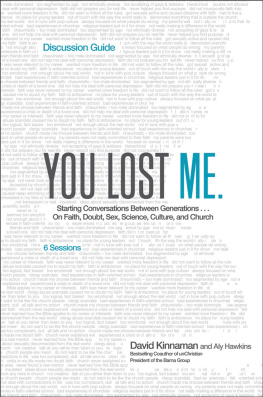
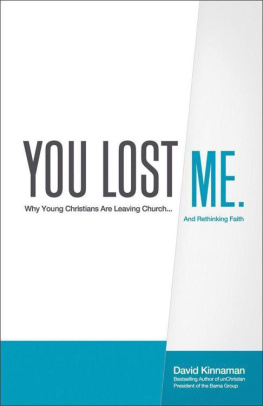
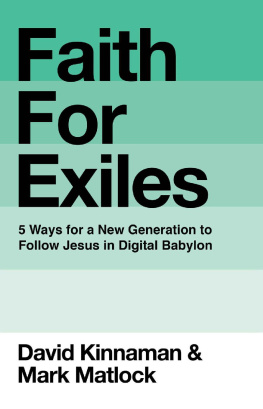
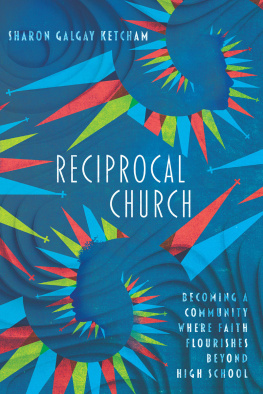
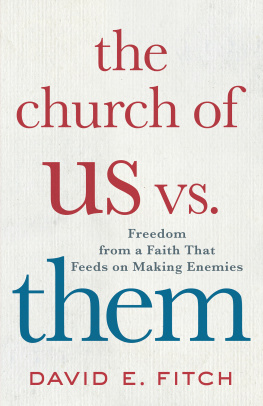
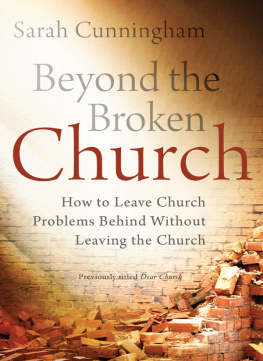
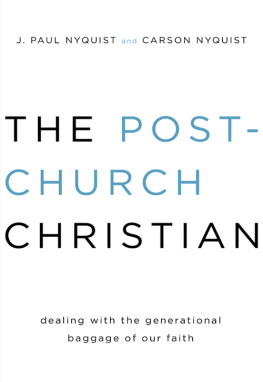

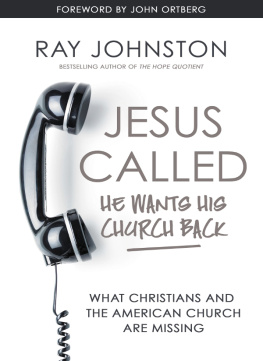

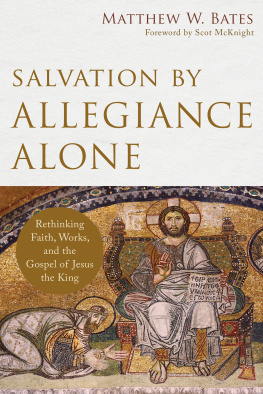
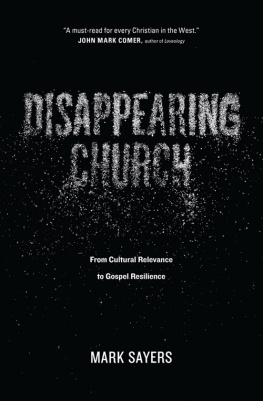


 View An Introduction on the DVD
View An Introduction on the DVD

